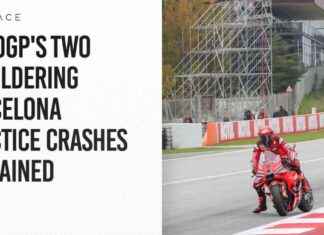The Supreme Court has annulled, due to its “important motivational cracks” and “lack of coherence”, the sentence handed down on January 21, 2021 by the Second Criminal Section of the National Court that acquitted the ETA member Soledad Iparraguirre -alias Anboto- of three attempted murders, havoc and injuries, caused by an attack with grenades against a police station in Oviedo on July 21, 1997.
The Supreme Court upholds the appeal filed by the Prosecutor’s Office against the acquittal and orders the trial court to hand down a new sentence, assessing the evidence that, with insufficient reasoning, it excluded from its first pronouncement. The rapporteur for the now annulled resolution was the progressive magistrate José Ricardo de Prada.
The excluded evidence that must now be assessed by order of the Chamber presided over by Judge Manuel Marchena is an expert intelligence report prepared by the Civil Guard on the facts and the statement made by one of the terrorists already convicted of the same attack, Kepa Arronategui .
In this last case, the prosecutor’s disagreement centered, with support on the content of the particular opinion of a magistrate of the National Court, María Fernanda Pérez, who was in favor of the conviction of Soledad Iparraguirre, on the inconsistency that represented that the The same speaker of the sentence that questioned the validity of the initial incriminating testimony, validated that same statement in the sentence that sentenced Kepa Arronategui himself. In addition, these statements have already been validated in two other previous sentences of the National Court, confirmed by the Supreme Court.
Given this, for the High Court, the Hearing should have indicated more precisely what reasons justified the change of criteria on the validity of said evidence and, consequently, on its incriminating sufficiency.
Regarding the expert intelligence report carried out by two civil guards, the Chamber indicates that the disqualification in its entirety of all the material incorporated into the report, which would be affected -according to the Court- by insufficient evidence and doubts about its reliability, “will not accompanied by a detailed explanation that comes close to the demands of a constitutionally relevant motivation, especially when the result is to deprive -without coherently explaining why- of any procedural value to documents for which there is no evidence of their structural nullity “.
The Chamber considers that “the non-assessment of the documents included in the expert report to which the Prosecutor refers in his appeal, invoking for this purpose an “in integrum” disqualification devoid of any justification, implied a violation of the right to effective judicial protection that Article 24.1 of the CE recognizes any party in the criminal process”.
The sentence of the National Court now annulled had the particular vote of a magistrate, who was in favor of sentencing Iparraguirre to 71 years in prison for three crimes of attempted terrorist murder, terrorist havoc and terrorist injuries, by dissenting from his two roommates in the decision to exclude the two tests mentioned.
On the other hand, the Supreme Court does not share the assessment of ‘material res judicata’ argued by the Court between the facts investigated and prosecuted in France and for which the sentence was handed down and the courts in Spain related to the attack in Oviedo, which, for the judgment of first instance, should have entailed the existence of a ‘bis in idem’ and the impossibility of his new trial in Spain.
The magistrates answer that “in order to exclude the prosecution of acts of singular seriousness, it is not enough to proclaim that «…there are reasons to affirm the existence of material res judicata”, but that these reasons “must be made explicit, with a meticulous contrast between the documents that allow us to conclude this duplicity of prosecution”, and “it is not enough -it cannot be- an act of voluntaristic inspiration that considers as judged what has not been subject to judicial treatment”.
It recalls in this regard that this matter was not alleged by any of the parties, it was not proposed in the defense brief and, therefore, it was excluded from the debate in plenary, and it was in the majority judgment where, for the first time, this impediment surfaced. procedural whose adequate legal treatment would have required having granted the opportunity for cross-arguments by the prosecutor and the defenses.
The court of the Criminal Chamber of the Supreme Court that has handed down the sentence is made up of magistrates Marchena (president and rapporteur), Andrés Palomo, Susana Polo, Ángel Luis Hurtado and Leopoldo Puente.
According to the criteria of The Trust Project







